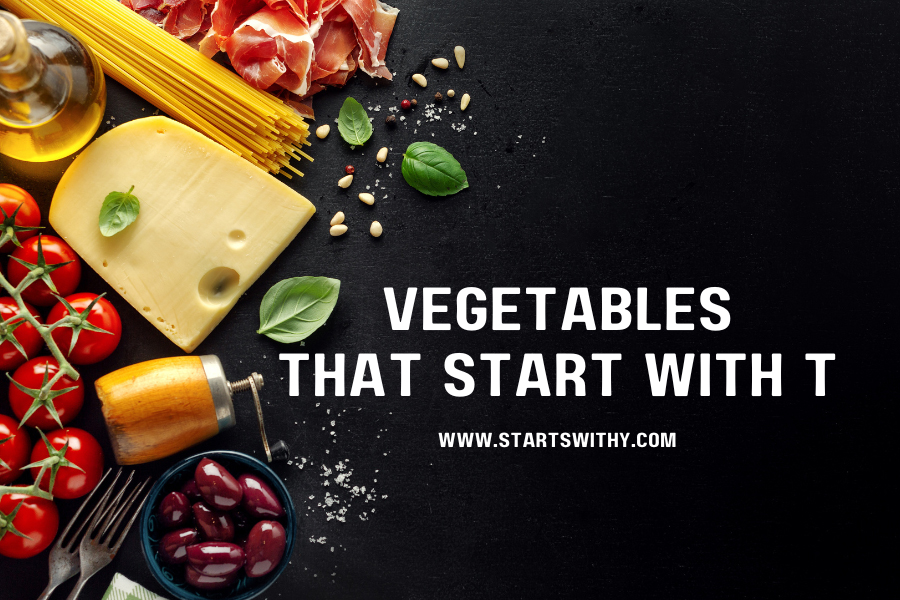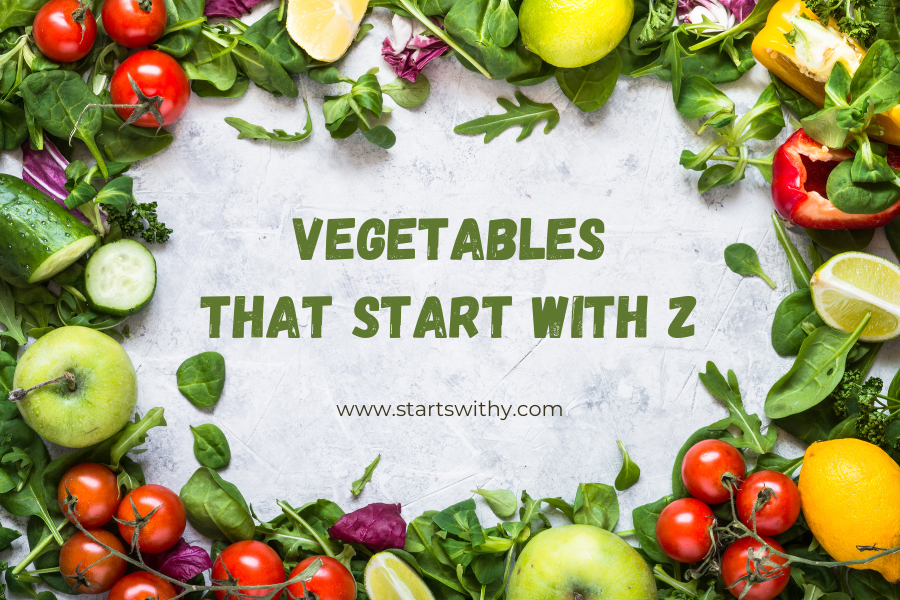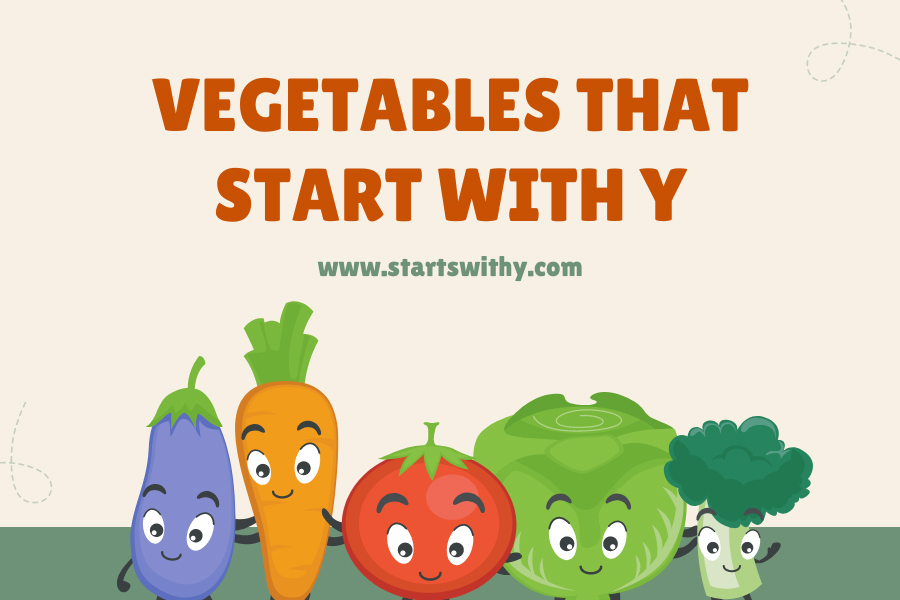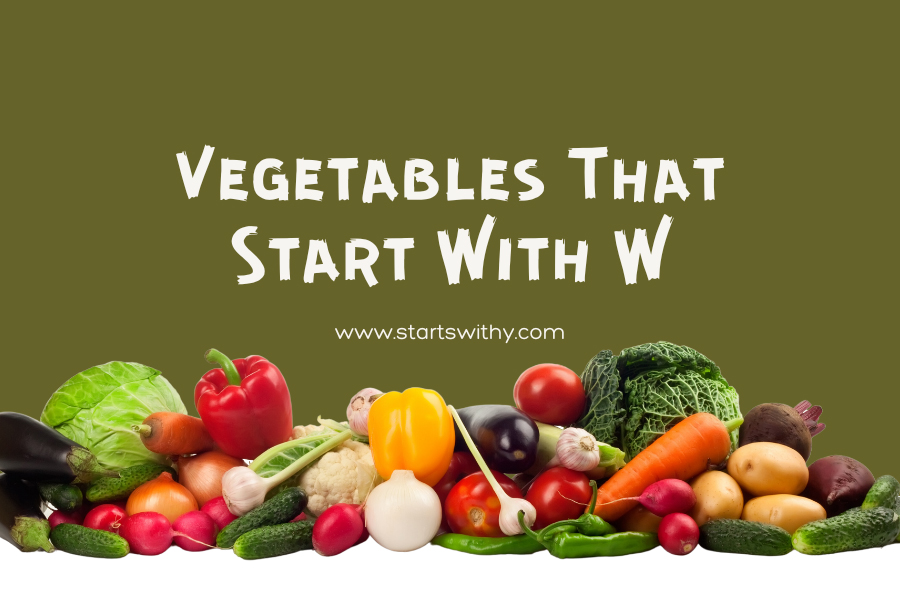In the sprawling expanse of the vegetable kingdom, each letter introduces us to a unique ensemble of flavors, nutritional attributes, and culinary tales. The letter ‘T’ transports us to a tantalizing terrain of vegetables, each bearing its distinct identity and offering. This article aims to take readers on a trek through the terrain of ‘T’-tagged vegetables.
From the hearty tubers like turnips that have sustained civilizations for millennia, to the tropical treat of taro, we will delve into their diverse culinary applications, health benefits, and historical anecdotes. Whether you’re a culinary creator, a botany buff, or simply someone with a curiosity about the world of edibles, let’s embark on this tasty tour, traversing the rich tableau of vegetables that tout the title of the letter “T”.
Vegetables That Start With The Letter T
When it comes to diversity in the vegetable kingdom, the letter ‘T’ brings forth an array of offerings that are not only rich in flavors and textures but also brimming with health benefits. Ranging from common garden varieties to more exotic selections, these ‘T’ vegetables provide a culinary versatility that caters to a plethora of dishes across various cuisines. Let’s embark on a delectable journey through these 15 vegetables that start with the letter ‘T’.
1. Tomato
Arguably the most recognized vegetable (or fruit, botanically speaking) starting with ‘T’, tomatoes are culinary staples in numerous cuisines worldwide. Whether eaten raw in salads, cooked into sauces, or made into juices, they are a rich source of vitamins C and K, potassium, and the antioxidant lycopene.
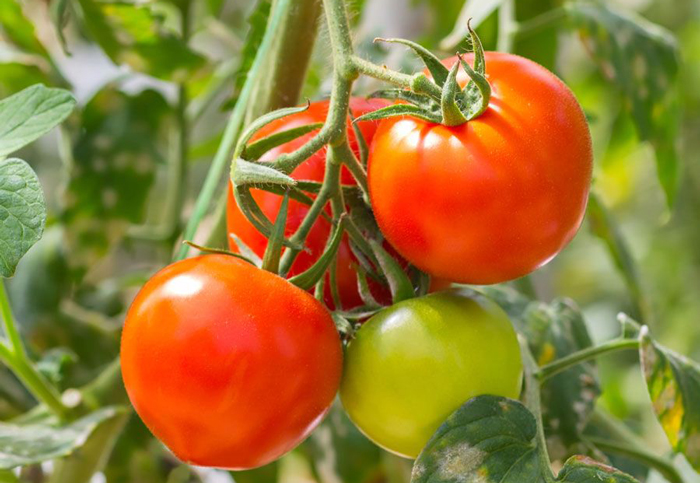
2. Turnip
Turnips, with their slightly peppery flavor, can be boiled, mashed, roasted, or even eaten raw. The leafy greens of turnips are also edible and highly nutritious. Turnips are a good source of vitamin C, fiber, and various minerals.
3. Tatsoi
A member of the mustard family, tatsoi is a leafy green vegetable with a soft creamy texture and a mild, slightly mustardy taste. Often used in salads and stir-fries, it is packed with vitamins A, C, and calcium.
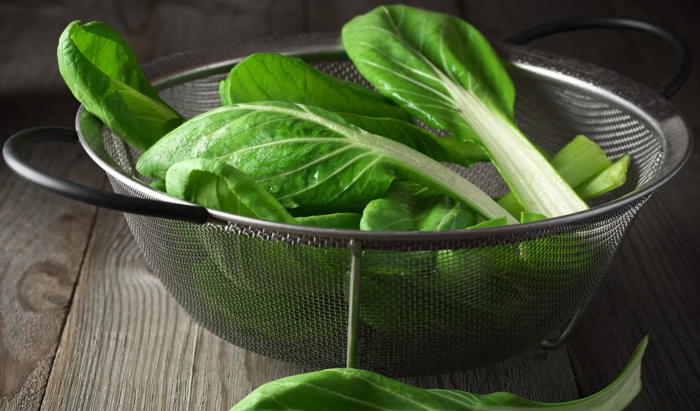
4. Taro
Taro is a starchy root vegetable with a slightly nutty flavor. It’s essential to cook taro properly as it can be toxic when raw. It is a staple in many tropical regions and is a good source of fiber, potassium, and vitamins E and B.
5. Turmeric

While primarily known as a spice, turmeric is a root vegetable closely related to ginger. Its brilliant yellow color and unique flavor make it a mainstay in various dishes, especially in Indian cuisine. Turmeric contains curcumin, a powerful anti-inflammatory compound.
6. Tomatillo
Often mistaken for green tomatoes, tomatillos come encased in a papery husk and offer a tart flavor. They are essential for making salsa verde and provide dietary fiber, vitamins C and K, and niacin.
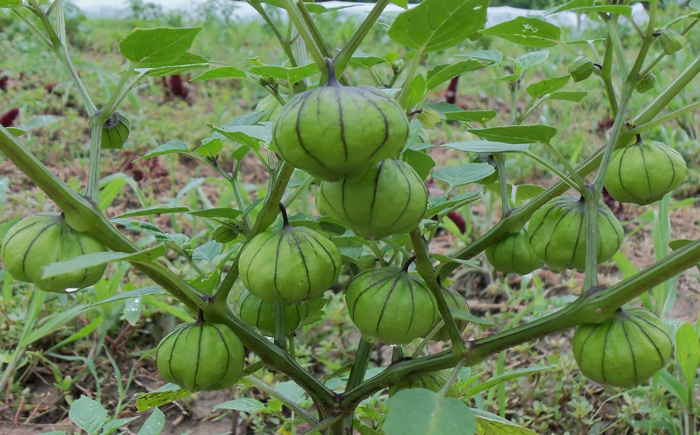
7. Thai Basil
Distinct from the more commonly known sweet basil, Thai basil has purple stems and a spicier, anise-like flavor. It’s a staple in many Southeast Asian dishes. Rich in antioxidants, it also provides vitamin A, calcium, and magnesium.
8. Tree Spinach
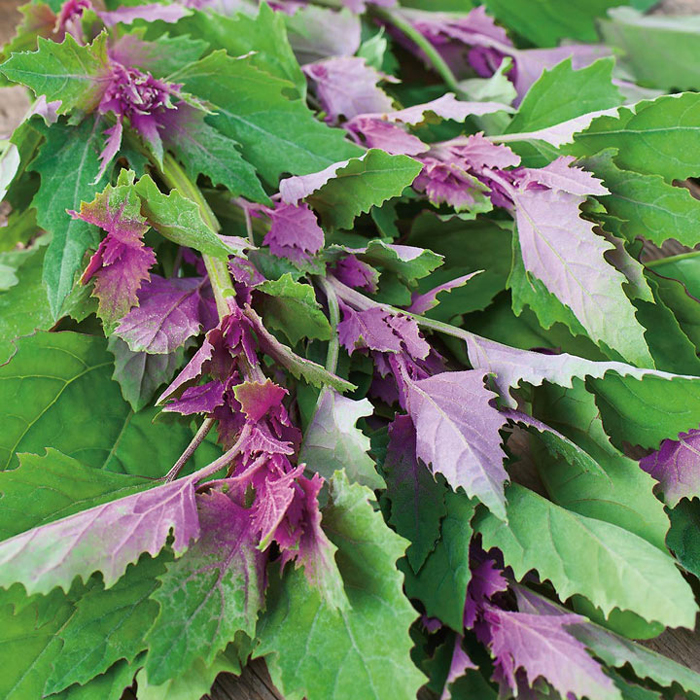
Also known as chaya, tree spinach is a leafy vegetable that’s often consumed in Central America. The leaves must be cooked before eating, as they contain toxic compounds when raw. Once cooked, they’re a nutritious source of protein, calcium, iron, and vitamins A and C.
9. Teasel Gourd
Popular in several Asian cuisines, teasel gourds are small, spiky fruits eaten as vegetables. They can be stir-fried, stuffed, or pickled. They provide a decent amount of vitamin C, fiber, and antioxidants.
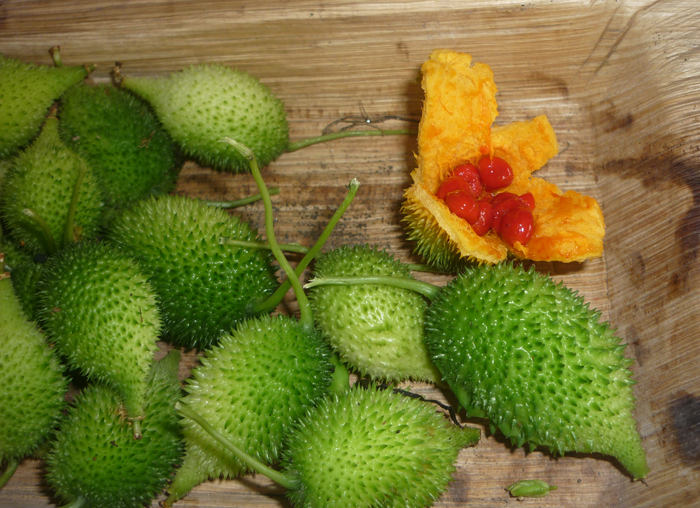
10. Tinda
Often referred to as apple gourds or Indian baby pumpkins, tindas have a mild flavor and a texture similar to zucchini. Common in Indian cuisine, they can be curried or dry-cooked. Tindas are low in calories and offer a good dose of dietary fiber.
11. Tarragon
This aromatic herb is often used in French cuisine, especially in chicken, fish, and egg dishes. Besides its culinary value, tarragon offers certain health benefits, including vitamins A and C, calcium, and magnesium.
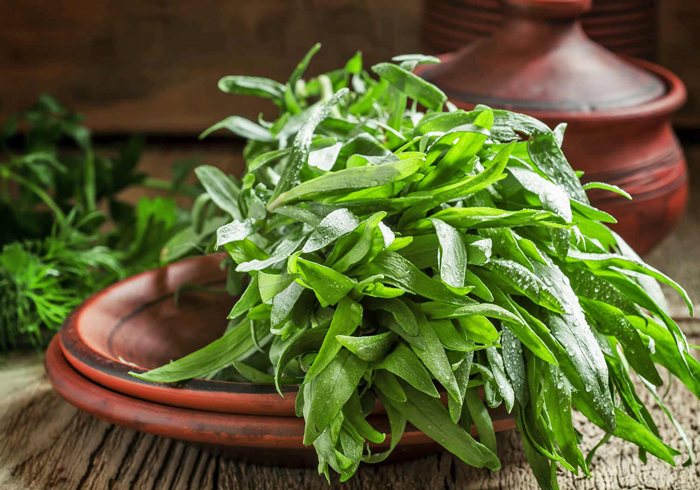
12. Tyfon
A cross between pak choi and turnip, tyfon is a leafy vegetable with bulbous stems. It’s used in salads and stir-fries and provides vitamin C, calcium, and potassium.
13. Tiger Nut
Not actually a nut, tiger nuts are small, tuberous vegetables that are often dried and consumed as snacks or made into “milk”. They are a source of resistant starch and provide vitamins E and C, and magnesium.

14. Thyme
Though more of a herb than a vegetable, thyme is worthy of mention due to its pervasive use in cooking and its health properties. It pairs well with various dishes, offering a subtle, earthy flavor. Thyme also boasts antiseptic and antifungal properties.
15. Tepary Bean
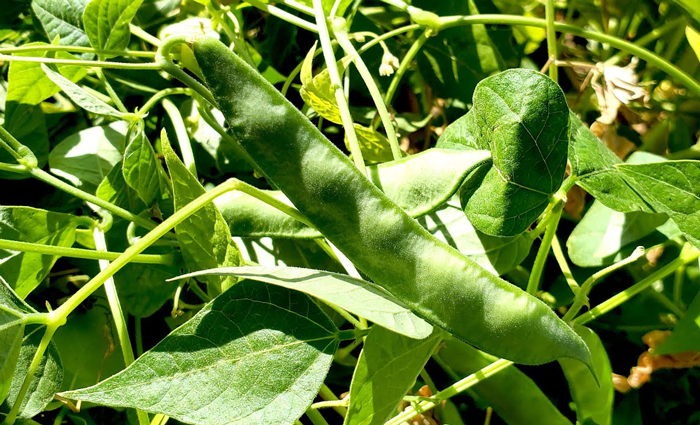
Native to the southwestern United States and Mexico, tepary beans are drought-resistant and come in various colors. They’re often used in soups and stews and are a good source of protein, fiber, and various essential minerals.
16. Tabasco Pepper
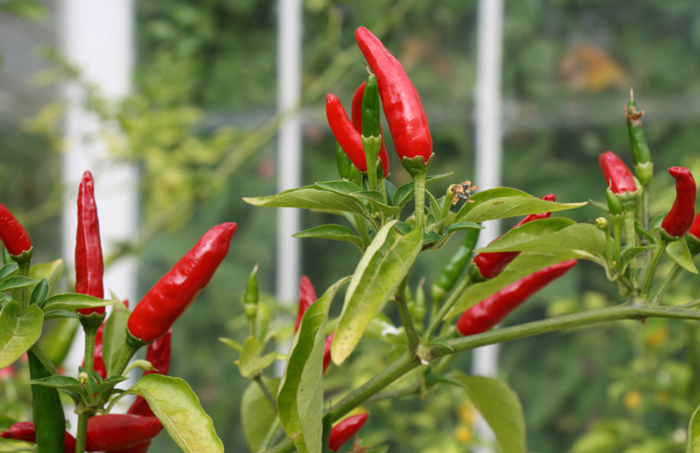
Though small in size, the Tabasco pepper packs a powerful punch of heat. Native to Mexico and Central America, this fiery fruit is a member of the Capsicum genus, alongside bell peppers, jalapeños, and chilies. Measuring just 1-2 inches in length, Tabasco peppers boast a vibrant red skin and a fiery, concentrated flavor.
The heat of a Tabasco pepper is measured in Scoville Heat Units (SHU). While bell peppers register at a mere 0 SHU, Tabasco peppers can reach a scorching 30,000-50,000 SHU, making them about 100 times hotter than a jalapeño! This intense heat is due to the presence of capsaicin, a compound that binds to pain receptors in the mouth, creating the sensation of burning.
Despite their fiery nature, Tabasco peppers are a versatile ingredient in many cuisines. They are famously used in Tabasco sauce, a popular condiment known for its pungent flavor. They can also be added to soups, stews, salsas, and marinades for a touch of heat and depth. When handling Tabasco peppers, remember to wear gloves to avoid burning your skin, and be cautious when introducing them to children, as their intense heat can be overwhelming.
17. Table Beets
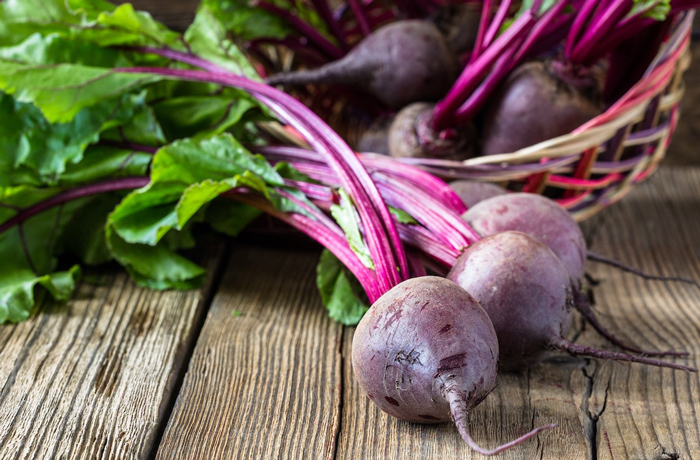
Table beets, also known as beetroot, are a vibrant root vegetable with a rich history and a multitude of culinary uses. Native to the Mediterranean region, beets have been cultivated for centuries, prized for their sweet, earthy flavor and striking red color. Today, they are grown worldwide, thriving in temperate climates.
The edible portion of a table beet is the taproot, which can grow to 2-4 inches in diameter and boasts a deep crimson hue. Beneath the skin, the flesh is a vibrant magenta, with concentric rings of white and red. This eye-catching appearance makes beets a welcome addition to salads, pickles, and roasted vegetables.
Beyond their visual appeal, beets are packed with nutrients. They are a good source of fiber, vitamin C, potassium, and folate. Beets are also known for their nitrates, which convert to nitric oxide in the body, potentially improving blood flow and reducing blood pressure. This makes them a healthy and delicious addition to any diet.
18. Tahitian Spinach
Tahitian spinach, also known as Malabar spinach or Ceylon spinach, is a leafy green vegetable native to Southeast Asia. Unlike its European namesake, Tahitian spinach is not a true spinach but belongs to the Basella genus. This tropical plant boasts lush, vibrant green leaves that can grow up to 6 inches long and have a slightly serrated edge. The stems are thick and fleshy, often tinged with purple, and the entire plant has a mild, slightly sweet flavor.
Tahitian spinach is a nutritional powerhouse, rich in vitamins A, C, and K, as well as iron and magnesium. It is also a good source of antioxidants, which help protect cells from damage. This leafy green is incredibly versatile in the kitchen. The leaves can be eaten raw in salads or stir-fries, steamed or sautéed, or used to make soups and stews. The stems can also be cooked and enjoyed like asparagus.
Beyond its culinary uses, Tahitian spinach has been used in traditional medicine for centuries. It is believed to have anti-inflammatory and wound-healing properties. Additionally, the leaves are a good source of chlorophyll, which can help detoxify the body.
19. Tamarillo
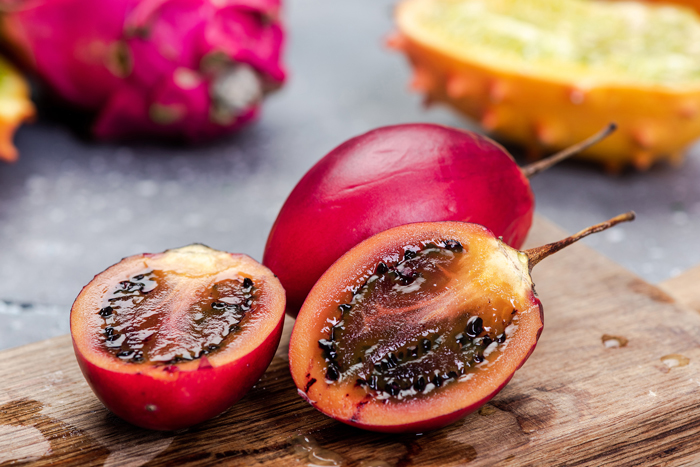
Hailing from the Andes Mountains of South America, the Tamarillo, also known as the tree tomato, isn’t your average tomato. This exotic fruit boasts an oblong shape, resembling an egg more than its rounder cousin. Its smooth, glossy skin ranges from vibrant orange to deep red, often with purple stripes, hinting at the juicy surprise within.
Slice open a Tamarillo, and you’ll be greeted by a vibrant orange flesh speckled with black seeds. The flavor? A delightful, complex mix of sweet, tangy, and citrusy notes, with a hint of tropical fruit like passionfruit or pineapple. This unique taste bud adventure makes Tamarillo a versatile treat. Enjoy it fresh in salads and salsas, blend it into smoothies, or transform it into jams and chutneys.
Tamarillo packs a nutritional punch too! It’s a good source of vitamins A and C, antioxidants, and dietary fiber. So, next time you’re looking for a burst of flavor and a boost of health, give this “tree tomato” a try!
20. Tamarind
Tamarind, the fruit of the tamarind tree, is a globetrotting wonder. Native to Africa, it has found a warm welcome in tropical regions worldwide, including Southeast Asia and South America. Its oblong, brown pods house sticky, sweet-and-sour pulp surrounding dark seeds. This unique flavor profile makes tamarind a culinary chameleon.
In savory dishes, its tangy notes add depth to curries, chutneys, and marinades. Its sweetness shines in desserts like ice cream, candies, and drinks. And beyond the taste, tamarind boasts impressive nutritional creds. It’s a good source of dietary fiber, vitamin C, and minerals like potassium and magnesium.
So, whether you’re a sweet tooth or a savory soul, there’s a way to enjoy tamarind. So, why not embark on a culinary adventure with this sweet-and-sour superstar?
21. Tarwi Bean
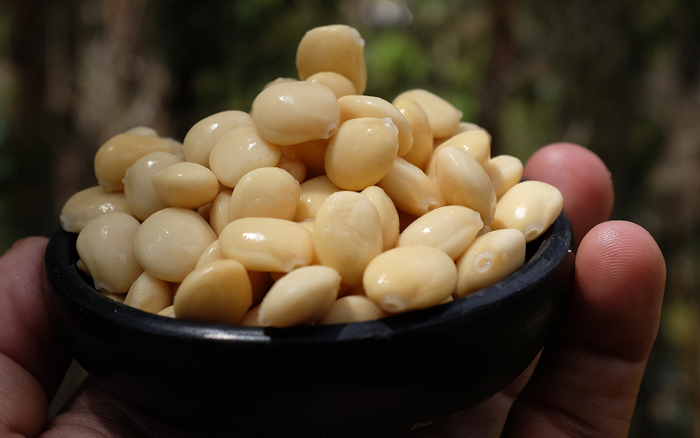
Nestled high in the Andes Mountains of Peru and Bolivia, a tiny nutritional powerhouse awaits: the Tarwi bean. These little nuggets, measuring just 3-5 mm, pack a flavor punch similar to lentils and chickpeas, with a hint of nuttiness and a slightly bitter edge. But their appeal goes beyond taste.
Tarwi beans are a protein champion, boasting more protein per gram than even meat! They’re also rich in fiber, iron, and essential amino acids, making them a valuable source of nutrition for people living in high-altitude regions. Traditionally, Tarwi beans are roasted and ground into flour for making pancakes, stews, and even a cheese-like spread called “chocho.”
Today, Tarwi beans are gaining recognition as a superfood thanks to their impressive nutritional profile and unique flavor. So, if you’re looking for a protein-packed, nutrient-rich, and taste-bud-intriguing addition to your diet, give Tarwi beans a try!
22. Thai Eggplant
Move over, classic eggplant! Thai Eggplant, also known as globose eggplant, brings a burst of color and unique flavor to the table. Unlike its longer, purple cousin, Thai Eggplant boasts adorable, pea-sized spheres with smooth, glossy skin in vibrant shades of green, white, and even purple stripes. Don’t let their size fool you; these tiny delights pack a flavor punch.
Inside, the flesh is white and tender, offering a mild, slightly sweet taste with a hint of bitterness. While they can be enjoyed raw, Thai Eggplant truly shines when cooked. Sauté them for a delightful stir-fry addition, grill them whole for a smoky appetizer, or pickle them for a tangy treat.
Beyond their culinary appeal, Thai Eggplant is a nutritional gem. They’re low in calories and fat but rich in vitamins A and C, fiber, and antioxidants. So, next time you’re at the market, seek out these little green wonders and embark on a flavor adventure!
23. Tindora

Get ready for a unique veggie experience with Tindora! This quirky gourd, native to India and Southeast Asia, resembles a miniature zucchini with bright green ridges running along its slender body. Don’t let its unusual appearance fool you; Tindora is a culinary chameleon.
The crisp, tender flesh boasts a mild, slightly sweet flavor with a hint of bitterness. Tindora shines in stir-fries, curries, and stews, readily absorbing the surrounding flavors. But it’s not just a supporting actor; Tindora can also take center stage. Stuff them with spiced ground meat or cheese, pickle them for a tangy snack, or even enjoy them raw in salads.
And like many leafy greens, Tindora is a nutritional powerhouse. It’s low in calories and fat but rich in vitamins A, C, and K, as well as iron and folate. So, embrace the quirkiness and unlock the culinary potential of this versatile gem!
24. Turnip Greens
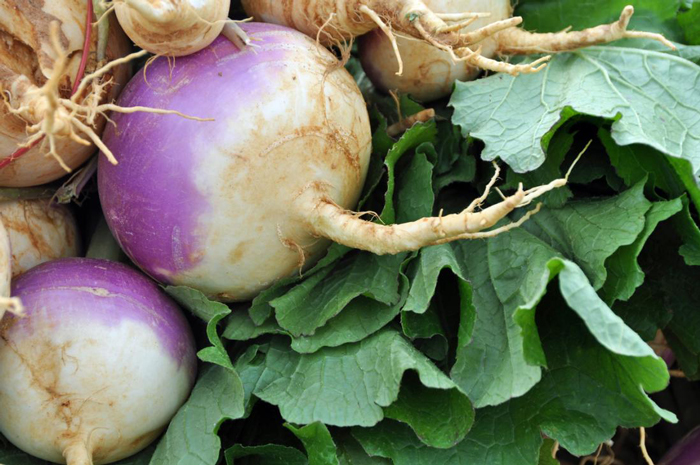
Don’t underestimate the humble turnip green! Often relegated to the sidelines, these leafy tops are nutritional rockstars and deserve a starring role on your plate. These emerald green leaves, with their slightly serrated edges and prominent veins, offer a delightful texture and a surprisingly complex flavor.
Turnip greens boast a slightly peppery bite with hints of bitterness and earthiness, a perfect counterpoint to richer dishes. They excel in stews, braises, and even simple sautéed preparations. And if you’re feeling adventurous, try them raw in salads for a taste bud tingle.
Beyond their culinary appeal, turnip greens are nutritional champions. They’re low in calories and fat but overflowing with vitamins A, C, and K, fiber, calcium, and iron. So, next time you buy turnips, don’t toss the greens! Embrace their bold flavor and unlock their hidden health benefits.
List of Vegetables Starting with T
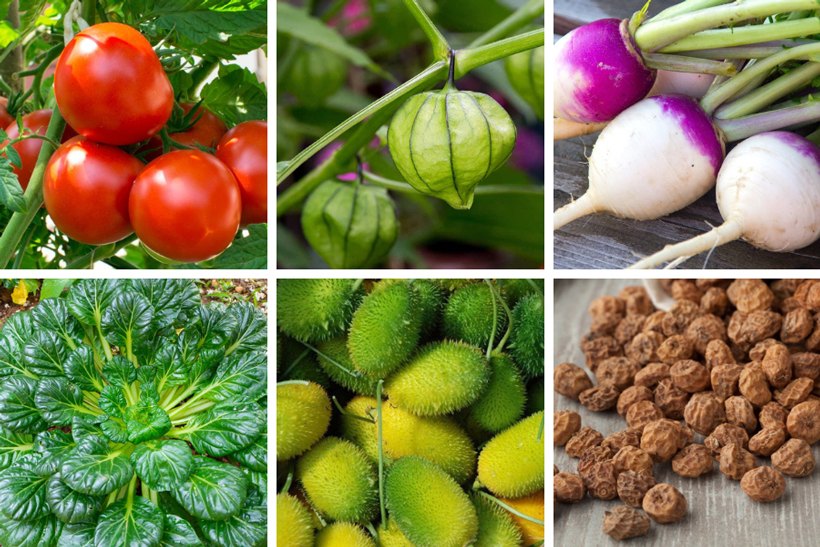
| Tabasco Pepper | Table Beets | Tahitian Spinach |
| Tamarillo | Tamarind | Taro |
| Tarwi | Tarwi Bean | Tatsoi |
| Tepary Bean | Tepary Beans | Thai Basil |
| Thai Chili Pepper | Thai Eggplant | Tigernut |
| Tinda | Tindora | Tipuho |
| Tomaccio | Tomatillo | Tomato |
| Topinambur | Tree Onion | Trinidad Moruga Scorpion Pepper |
| Turban Squash | Turmeric | Turnip |
| Turnip Greens | Turnip Hakurei | Turnips |
| Tuscan Kale |
Conclusion
The tantalizing ‘T’ in the world of vegetables invites us into a realm of rich flavors, diverse textures, and numerous health benefits. From the ever-popular tomato to the lesser-known tepary bean, these vegetables not only elevate our culinary experiences but also provide essential nutrients vital for our well-being. As you explore recipes or peruse the vegetable market, make room for these terrific ‘T’ vegetables, ensuring both a treat for your taste buds and a boost for your health.
Vegetables That Start With
A | B | C | D | E | F | G | H | I | J | K | L | M | N | O | P | R | S | T | U | V | W | Y | Z
